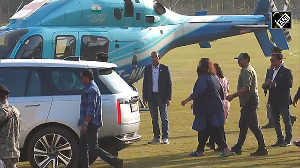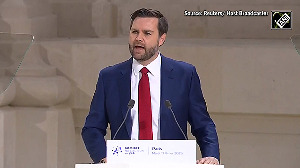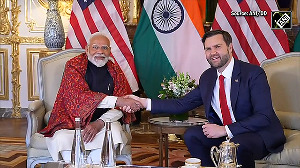The Hong Kong ministerial is the sixth since the World Trade Organisation replaced the old General Agreement on Tariffs and Trade, in 1995.
The first five were:
1. Singapore (December 9-13, 1996)
Ministers from some 120 countries, saying that the WTO had emerged as a positive force during its first two years, agreed they wanted "a world where trade flows freely" in order to achieve sustainable global growth and development.
But a bid by the US, with some support from the EU, to launch talks on linking labour standards to trade rules was rejected by the developing countries.
2. Geneva, Switzerland (May 18-20, 1998)
Called to mark the 50th anniversary of the GATT, the conference came at a time of financial turbulence originating in Asia sparking fears of protectionism. It declared that "keeping all markets open must be a key element in a durable solution to these difficulties."
Outside, anti-globalisation protesters made their first appearance at a major WTO meeting. Thousands marched through Geneva demanding that the trade body be closed down.
3. Seatlle, US (November 30-December 3, 1999)
Optimistically billed by then EU Trade Commissioner Sir Leon Britten as the launchpad for a "Millennium Round," the conference came close to wrecking the WTO.
Dubbed the "Battle of Seattle," it is largely remembered for the huge -- and sometimes violent -- demonstrations by what then Mexican President Ernesto Zedillo dubbed "globophobes".
The protesters, spearheaded by environmentalists and backed by some US labour unions, blocked access to the conference and prevented the opening ceremony taking place. Riot police cleared the protesters, and the conference got under way hours late.
4. Doha, Qatar (November 10-14, 2001)
Ministers gathered in the Qatari capital amid strict security just two months after the September 11 attacks. Countries declared themselves more ready to launch the round, if only to demonstrate North-South solidarity in the face of "terrorism."
But developing countries still insisted that their interests -- ranging from better access to farm produce markets in the richer economies to arrangements enabling the poorest nations to obtain cheap AIDS drugs -- must be a prime concern.
The EU and the US agreed that their farm subsidy plans would be included in the talks.
5. Cancun, Mexico (September 10-14, 2003)
A small-scale Seattle. Developing countries were already angry at what they saw as attempts by the EU and the US to stitch up a deal on farm trade that would spare them making big concessions.
Tens of thousands of protesters battled with the police as they tried to break through cordons and fences protecting the conference centre.
Seeing little hope for agreement, conference chairman and Mexico Trade Minister Luis Ernesto Derbez called an abrupt halt to proceedings. Cancun saw the emergence of the Brazil- and India-led G20 developing country alliance as a major negotiating force.







 © 2025
© 2025